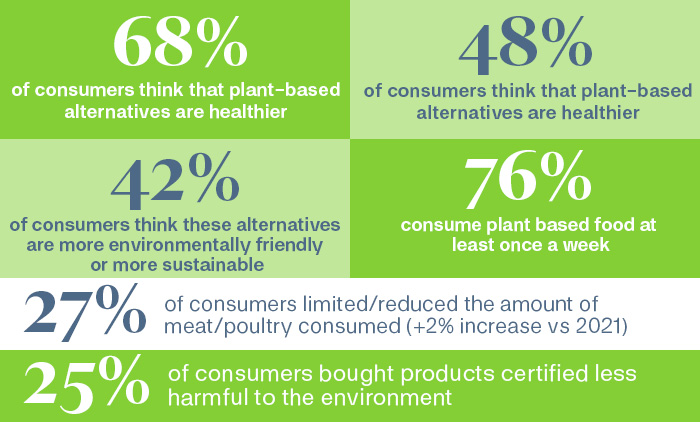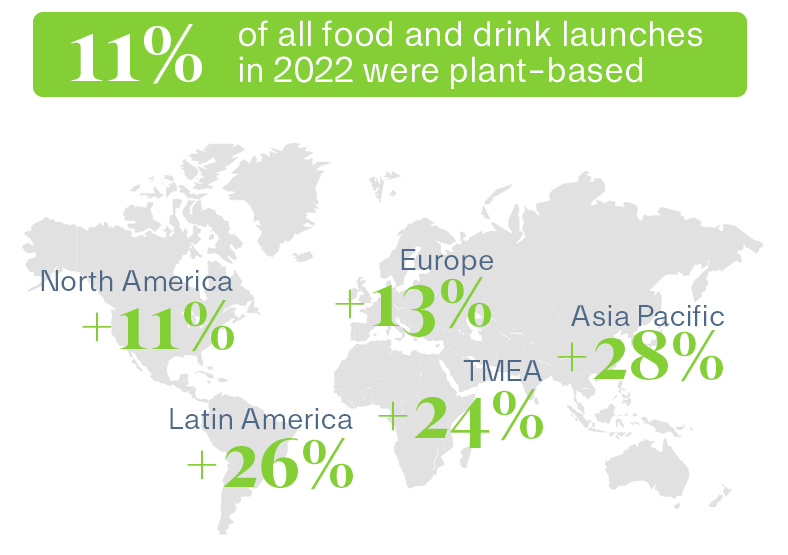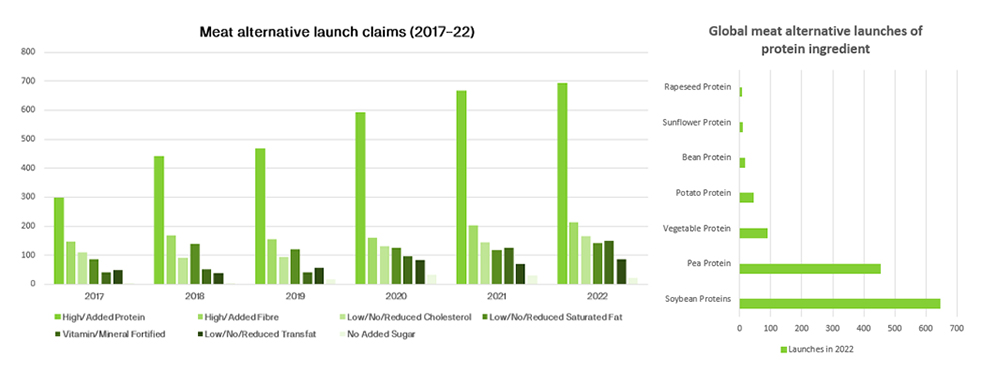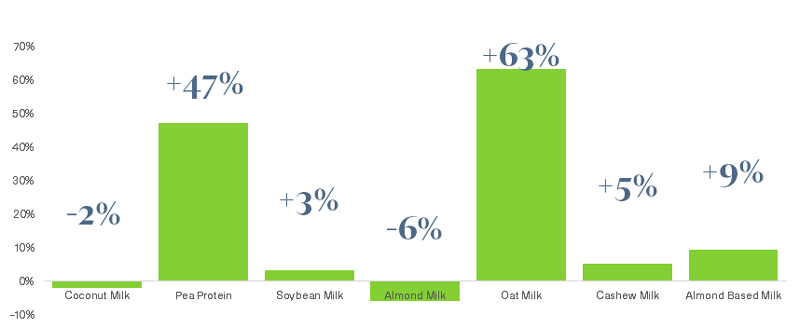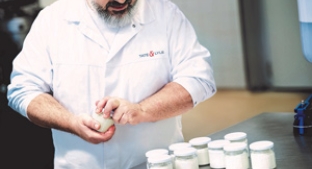When it comes to plant-based eating, the focus is on limitation, not elimination. Only 2% of consumers worldwide identify as vegan, with many more adopting flexitarian diets due to positive health outcomes as well as environmental impacts.
The prominence of issues around global warming, environmental deterioration, climate change and resource shortages have heightened consumer awareness. Ultimately, people prefer tasty products that are better for them and better for the planet.
The global marketplace is booming with plant-based innovation. Product launches with vegan and/or plant-based claims have increased 16% over the past five years.
Global growth of plant-based product launches
CAGRs 2017-2022
Mintel GNPD - Product launches with one or more of the following claims: Vegan/No Animal Ingredients; Plant Based; Categories represent >80% of launches between 2017-22; *SSD includes Soups, Sauces, Seasonings and Spreads
Double digit growth observed in plant-based innovations across Snacks, SSD, Bakery and Dairy, which are some of the dominant F&B categories. Phenomenal growth observed across certain beverages, namely nutritional drinks and meal replacement drinks, carbonated soft drinks, RTDs and sports & energy drinks.
To add value, innovation in meat alternatives must go beyond replicating meat’s taste and texture to improving nutritional profile and diversifying plant protein sources.
Source: Mintel GNPD; launches with one or more of the following claims: Vegan/No Animal Ingredients; Plant Based
Added value can also be achieved through diversification of plant sources for dairy alternatives.
Closing the pricing gap with animal-based counterparts will continue to be a challenge but price sensitivity can be reduced with perceived added value. Non-soy plant sources like almonds, oats, coconut, and peas have sparked innovation in the dairy alternative category, and many consumers perceive they are “better-for-you” and easier to digest than cow's milk. Another feature of note is consumers' desire for cleaner products with ingredient names they can pronounce. Long ingredient lists with unknown ingredients raises doubts about how natural and healthy a product is.
Global growth of dairy alternative launches by type
CAGR 2017-2022
Source: Mintel GNPD (2017-22), dairy alternative drinks, yogurt, ice cream

Our new programme supporting stevia sustainability
In July 2021, we launched a new sustainability programme to enable stevia growers in China to lower their environmental impact and gain greater economic benefit from production.
Most Tate & Lyle ingredients are plant-based and can help to optimise taste, texture and nutrition in plant-based innovation. Along with our formulation expertise, our ingredients offer the functionality required for plant-based formulations that consumers will love, are better for them, and better for the planet.
All Tate & Lyle’s ingredients derived from corn are enrolled in a sustainable agriculture programme. We are committed to caring for the planet and protecting its natural resources.
